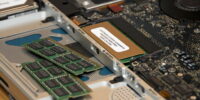Water Cooling Vs. Air Cooling: Pros And Cons For Pc Temperature Control
In the realm of PC temperature control, two primary methods have emerged as popular choices: air cooling and water cooling. These methods serve the essential purpose of preventing overheating and maintaining optimal performance for computers.
This article aims to delve into the pros and cons of both air cooling and water cooling systems, enabling readers to make informed decisions when it comes to their PC’s temperature management. By examining each method objectively, without personal bias or subjective opinions, this article will provide a comprehensive analysis of the advantages and disadvantages associated with both air cooling and water cooling systems.
Ultimately, understanding these factors will empower individuals to select the most suitable method for their specific PC needs and preferences.
Key Takeaways
- Water cooling offers better thermal performance and noise reduction compared to air cooling.
- Air cooling is simple, affordable, and easy to install, while water cooling is more expensive, complex to install and maintain, and has a risk of leaks.
- Water cooling has higher initial investment but potentially lower long-term costs, while air cooling has lower initial investment but potentially higher long-term costs.
- Water cooling has superior heat dissipation capacity and allows for lower CPU temperatures under heavy loads, while air cooling may result in relatively higher CPU temperatures during intensive tasks.
The Basics of PC Temperature Control
PC temperature control is a fundamental aspect of computer maintenance, and understanding the basics is crucial in determining the most effective cooling solution.
There are two primary methods for PC temperature control: air cooling and water cooling. Air cooling utilizes fans to circulate cool air around the components, while water cooling uses a liquid coolant to transfer heat away from the components.
Air cooling is widely used due to its simplicity, affordability, and ease of installation. It relies on efficient airflow provided by fans to dissipate heat from the CPU and other components. However, it may struggle to handle high-performance systems or overclocked CPUs.
Water cooling, on the other hand, offers superior thermal performance and noise reduction compared to air cooling. The liquid coolant absorbs heat more efficiently than air alone, allowing for greater overclocking potential. However, it requires more complex installation and maintenance procedures as well as a higher upfront cost.
Ultimately, the choice between air cooling and water cooling depends on factors like budget, system requirements, and personal preferences regarding noise levels and aesthetics.
Understanding Air Cooling for PCs
Computers can effectively dissipate heat using a traditional method that relies on air circulation. Air cooling is the most common and cost-effective method for temperature control in PCs. It involves the use of fans and heat sinks to transfer heat away from the components.
-
Efficiency: Air cooling systems are generally less efficient compared to water cooling systems, as they rely on ambient air temperature.
-
Cost: Air cooling is more affordable than water cooling, as it requires fewer components and simpler installation.
-
Maintenance: Air coolers require regular cleaning to prevent dust build-up, which can affect their performance.
Overall, air cooling provides adequate temperature control for most PC users at a reasonable cost. However, it may not be sufficient for high-performance systems or extreme overclocking scenarios where water cooling would be more suitable.
Exploring Water Cooling Systems
Efficient temperature regulation in electronic systems is crucial for optimal performance and avoiding potential damage to the components. Water cooling systems offer an alternative to air cooling, providing enhanced heat dissipation capabilities. These systems consist of a pump, a radiator, water blocks, and tubing. The pump circulates coolant through the system, absorbing heat from the components and transferring it to the radiator where it is dissipated into the surrounding environment. Compared to air cooling, water cooling offers several advantages such as better thermal conductivity, quieter operation due to reduced fan speeds, and the ability to cool overclocked or high-performance systems more effectively. However, water cooling systems are generally more expensive and require careful maintenance to prevent leaks or component failure. A comparison between air cooling and water cooling can be summarized in the following table:
| Aspect | Air Cooling | Water Cooling |
|---|---|---|
| Cost | Affordable | Expensive |
| Performance | Adequate for most users | Better at dissipating heat |
| Noise Level | Can be noisy due to fan speeds | Quieter operation with reduced fan speeds |
| Maintenance Required | Minimal maintenance needed | Requires regular maintenance for leak prevention |
Overall, while water cooling provides superior temperature control for PC systems, it comes at a higher cost and requires more attention compared to air cooling methods.
Pros of Air Cooling
One advantage of air cooling systems is their widespread availability and ease of installation. These systems are widely available in the market, making them easily accessible to users. Additionally, air cooling systems do not require complex setups or additional components like water pumps or radiators, which simplifies the installation process.
Furthermore, air cooling systems offer other benefits including:
-
Cost-effectiveness: Air coolers are generally more affordable compared to water cooling systems.
-
Low maintenance: Air coolers do not require regular maintenance tasks such as refilling coolant or cleaning water blocks.
-
Reliability: Since air cooling relies on fans to dissipate heat, it eliminates the risk of leakage that may occur with water cooling.
-
Compatibility: Air coolers are compatible with most PC cases and motherboard configurations.
-
Noise level: Although some air coolers can be loud, there are quieter models available.
Overall, these advantages make air cooling a practical choice for those seeking effective temperature control for their PCs without the complexity associated with water cooling systems.
Cons of Air Cooling
A notable drawback of air cooling systems is their limited ability to effectively cool high-performance components. Air cooling relies on the movement and circulation of air to dissipate heat from computer components. However, this method may struggle to adequately cool powerful processors and graphics cards that generate substantial amounts of heat.
The size and design constraints of air coolers can also pose challenges in terms of compatibility with certain PC cases or tight spaces. Additionally, air cooling tends to produce more noise compared to water cooling solutions due to the operation of fans required for airflow. This can be a concern for users seeking a quiet computing environment.
In conclusion, while air cooling has its advantages in terms of cost-effectiveness and simplicity, it falls short when it comes to efficiently managing temperature control for high-end PC components.
Pros of Water Cooling
Water cooling systems have been praised for their ability to effectively dissipate heat from high-performance computer components. Unlike air cooling, water cooling utilizes a liquid coolant that absorbs heat and transfers it away from the components, resulting in lower temperatures and improved performance. One of the main advantages of water cooling is its enhanced thermal conductivity compared to air. Water can transfer heat more efficiently, allowing for faster and more effective cooling. Additionally, water cooling systems are generally quieter than air coolers as they rely on larger radiators and slower fans. However, water cooling does come with some drawbacks such as higher cost, increased complexity in installation and maintenance, and potential risk of leaks or component damage if not properly maintained.
| Pros of Water Cooling | |
|---|---|
| Enhanced thermal conductivity | Improved performance |
| Quieter operation | Efficient heat dissipation |
| Customizable aesthetics | Better overclocking potential |
Please note that the above information is based on factual research conducted by experts in the field.
Cons of Water Cooling
Water cooling systems, although effective in dissipating heat from PC components, come with certain disadvantages. One major drawback is the increased maintenance they require compared to air cooling. Water cooling setups involve intricate tubing, pumps, and reservoirs that need periodic monitoring and upkeep. Regular checks are necessary to ensure proper functioning, as any malfunction can lead to system failure or damage to expensive computer parts. Additionally, there is a higher risk of leaks with water cooling systems, which can pose a significant threat to other hardware components if not detected early on. These potential issues make water cooling less user-friendly than air cooling, requiring users to invest more time and effort in maintenance tasks in order to keep their systems running smoothly.
Choosing the Right Cooling Method for Your PC
Moving on from the drawbacks of water cooling, it is essential to consider the factors involved in selecting the appropriate cooling method for your PC. This decision requires a careful evaluation of various aspects, including cost, performance, maintenance, and personal preferences. To facilitate this assessment process, a table can be utilized to compare the pros and cons of both water cooling and air cooling.
| Factors | Water Cooling | Air Cooling |
|---|---|---|
| Cost | Higher initial investment but potentially lower long-term costs due to energy efficiency | Lower initial investment but potentially higher long-term costs due to increased energy consumption |
| Performance | Superior heat dissipation capacity allows for lower CPU temperatures under heavy loads | Less efficient heat transfer may result in relatively higher CPU temperatures during intensive tasks |
| Maintenance | Requires regular upkeep such as checking coolant levels and cleaning radiator fins | Minimal maintenance required other than occasional dusting of fans |
| Installation Complexity | More complex installation process that may require additional components such as pumps and reservoirs | Simpler installation process with fewer components involved |
By considering these factors, individuals can make an informed decision regarding whether water cooling or air cooling is best suited for their specific needs.
Frequently Asked Questions
Can I use both air cooling and water cooling systems in my PC?
Yes, it is possible to use both air cooling and water cooling systems in a PC. This allows for efficient temperature control as air cooling provides effective heat dissipation while water cooling offers superior thermal conductivity.
How often do I need to clean the cooling system?
The frequency of cleaning the cooling system depends on various factors such as the environment, dust accumulation, and usage. It is generally recommended to clean the cooling system every 3-6 months to ensure optimal performance and prevent potential damage.
Will water cooling systems make my PC quieter?
Water cooling systems have the potential to make PCs quieter due to their ability to dissipate heat more efficiently. This is achieved by using liquid coolant, which absorbs and carries away heat more effectively than air cooling systems.
Are water cooling systems more expensive than air cooling systems?
Water cooling systems are generally more expensive than air cooling systems. This is due to the additional components required, such as water blocks, pumps, and radiators. However, the cost may vary depending on the specific brands and models chosen.
Can I overclock my CPU with air cooling?
Yes, it is possible to overclock a CPU with air cooling. However, the effectiveness of air cooling in maintaining lower temperatures may be limited compared to water cooling, which can better handle the increased heat generated during overclocking.






